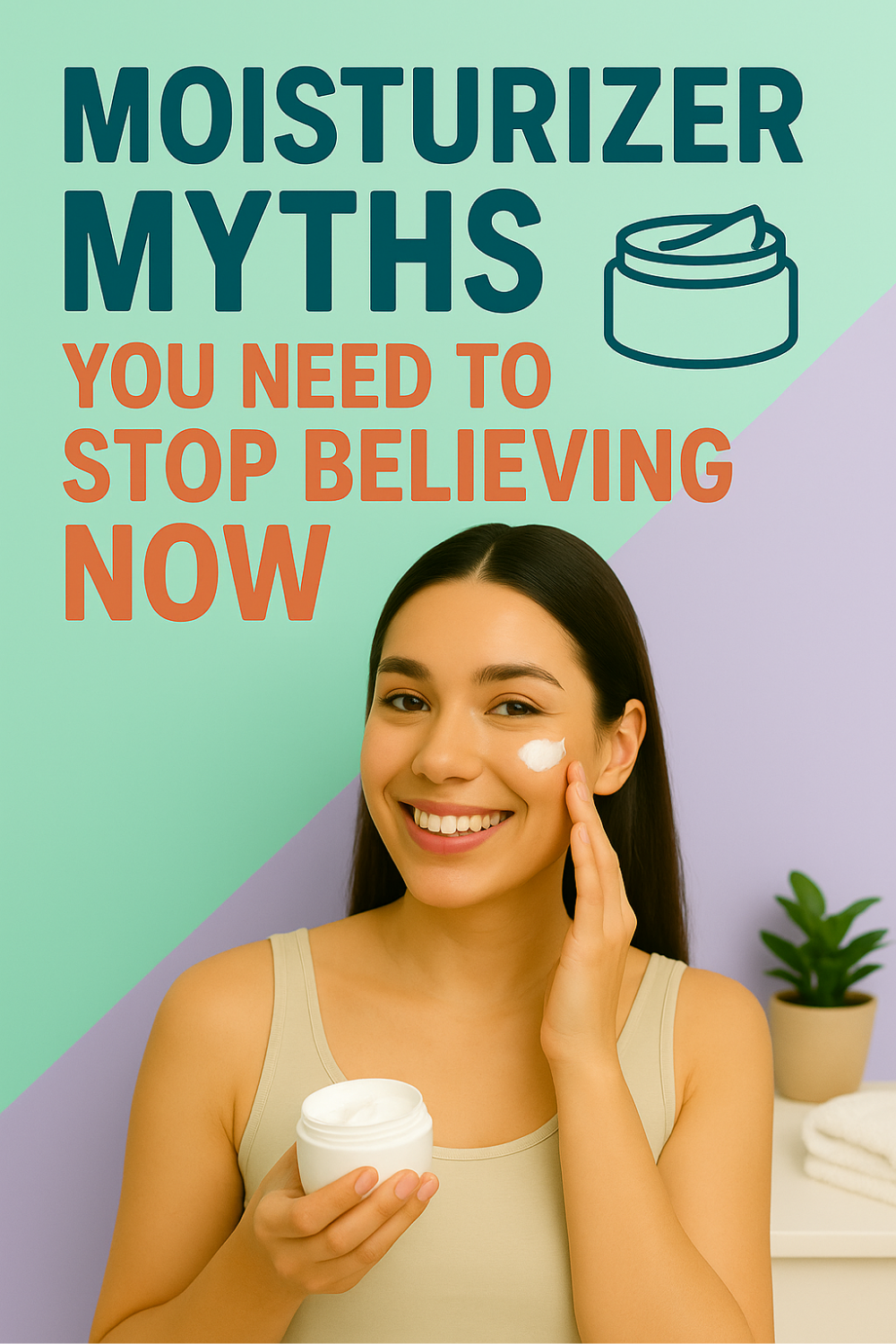Spending money on moisturizers without results? You’re not alone. Common moisturizer myths might lead you to overspend on ineffective products, leaving your skin dry, irritated, or unchanged. Understanding these myths clearly empowers you to choose skincare products wisely, saving money and improving your skin effectively. Ready to learn the truth about moisturizers? Let’s debunk these myths together and reveal the facts your skin truly deserves.

- Expensive Moisturizers Work Better
- Oily Skin Doesn’t Need Moisturizer
- Moisturizers Make Your Skin Lazy
- Natural Moisturizers Are Always Better
- You Only Need Moisturizer in Cold Weather
- Thicker Moisturizer Always Means More Hydration
- Moisturizers Eliminate Wrinkles Completely
Myth: Expensive Moisturizers Work Better
The belief that pricier moisturizers automatically work better isn’t always true. High price tags often reflect branding, packaging, or marketing—not necessarily ingredient quality or effectiveness.
In reality, many affordable moisturizers provide exceptional results using effective ingredients such as hyaluronic acid, ceramides, and glycerin. Evaluating ingredients clearly matters far more than price alone.
What to Do:
Always prioritize ingredient quality over cost. Effective moisturizers exist at every price range, saving you money and ensuring healthier skin.
Myth: Oily Skin Doesn’t Need Moisturizer
Many assume oily skin doesn’t need extra moisture, fearing it worsens oiliness or causes breakouts. However, skipping moisturizer causes your skin to produce more oil to compensate for dryness, increasing shine and acne risk significantly.
Oily skin types require balanced hydration to regulate oil production clearly and effectively.
What to Do:
Use lightweight, non-comedogenic moisturizers to keep oily skin hydrated without causing breakouts or excess shine.
Myth: Moisturizers Make Your Skin Lazy
The myth claims regular moisturizing makes your skin reliant and unable to hydrate itself, making your skin “lazy.” This is entirely false. Moisturizers simply assist your skin’s barrier in retaining moisture and protecting against environmental damage.
Consistent hydration maintains skin health clearly and doesn’t diminish natural skin functions.
What to Do:
Regularly apply moisturizer to support your skin barrier and maintain optimal hydration naturally.
Myth: Natural Moisturizers Are Always Better
Many assume natural or organic moisturizers automatically mean safer or better. However, not all natural ingredients suit everyone, and some can trigger allergies or irritation. Meanwhile, well-researched synthetic ingredients often provide highly effective, stable, and safe hydration clearly.
“Natural” does not always mean safer or superior effectiveness for every skin type.
What to Do:
Choose moisturizers based on your skin’s response to ingredients, natural or synthetic, rather than simply assuming natural means better.
Myth: You Only Need Moisturizer in Cold Weather
Many believe moisturizer is only necessary during cold, dry months. In reality, your skin needs consistent hydration year-round. Environmental factors like heat, air conditioning, sun exposure, and humidity fluctuations constantly affect your skin’s hydration clearly.
Skipping moisturizer in warmer months can lead to dehydrated, irritated skin.
What to Do:
Use appropriate moisturizers consistently throughout the year, adjusting product formulations as seasons change for balanced hydration.
Myth: Thicker Moisturizer Always Means More Hydration
It’s commonly believed thicker creams provide better hydration. However, thickness doesn’t automatically indicate superior hydration. Ingredients matter most. Lightweight gels with effective ingredients like hyaluronic acid can hydrate as effectively—or better—than heavy creams.
Consistency alone doesn’t determine effectiveness clearly.
What to Do:
Select moisturizers based on ingredients rather than texture alone. Match your skin type with suitable formulations for optimal hydration.
Myth: Moisturizers Eliminate Wrinkles Completely
While moisturizers significantly improve skin hydration, reducing fine lines and wrinkles visibly, no moisturizer completely eliminates wrinkles. Wrinkle reduction requires more comprehensive skincare routines, including retinoids, antioxidants, and sun protection consistently.
Moisturizers alone can’t reverse deep wrinkles entirely, although they clearly enhance overall skin appearance.
What to Do:
Combine moisturizer with active anti-aging ingredients and sun protection for comprehensive wrinkle prevention and reduction.
Frequently Asked Questions
Does moisturizer clog pores?
Not if chosen correctly. Non-comedogenic moisturizers hydrate without clogging pores, ideal for acne-prone or oily skin.
Should moisturizer always be fragrance-free?
Fragrance-free is best for sensitive or reactive skin. Others may tolerate mild fragrances, but fragrance-free remains safest.
Can I skip moisturizer if my cleanser is hydrating?
Usually not. Even gentle cleansers can strip skin slightly. A separate moisturizer ensures adequate hydration and barrier protection.
How often should I moisturize my skin?
Typically twice daily (morning and night). Adjust frequency based on personal skin needs and environmental conditions.
Is applying moisturizer to wet skin beneficial?
Yes, applying moisturizer to damp skin locks in moisture effectively, maximizing hydration and benefits clearly.